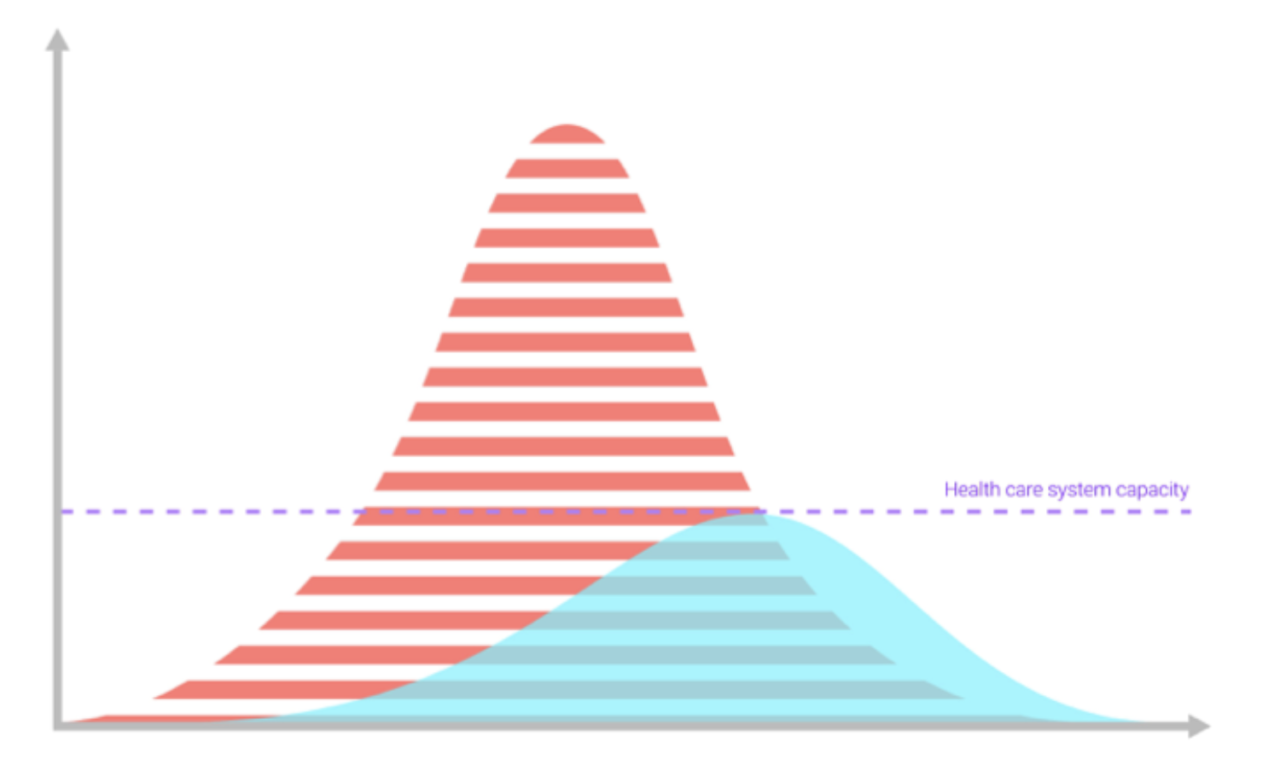Welcome to NAVIGATOR – a project designed to better understand the American public’s views on issues of the day and help advocates, elected officials, and other interested parties understand the language, imagery, and messaging needed to make and win key policy arguments.
This is a dynamic time, and as a result, Navigator will transition to a daily tracking poll on the coronavirus crisis. For the foreseeable future, we will be tracking public opinion every weekday, releasing on a Tuesday-Saturday schedule. In addition, future editions will provide more messaging guidance to the progressive community.
This edition of our daily tracking release features findings from a national online survey of 1,017 registered voters conducted March 25-30, 2020 and a combined dataset of all Navigator Daily tracking of 2,722 registered voters conducted March 20-30, 2020.
Key Takeaways
- Americans are increasingly worried about the impact of coronavirus on their own health and public health.
- Ratings of Trump’s handling of coronavirus remain mixed for the fourth straight update.
- A demographic deep dive into the data shows interesting divisions by race, class, and news consumption.
Health is Increasingly Americans’ Primary Concern.
Concerns about personal and national economies are increasingly secondary to health concerns.
- In the last week, personal concerns for health and well-being have grown by 9 points relative to the economy, and concerns about national health have grown by 10 points.
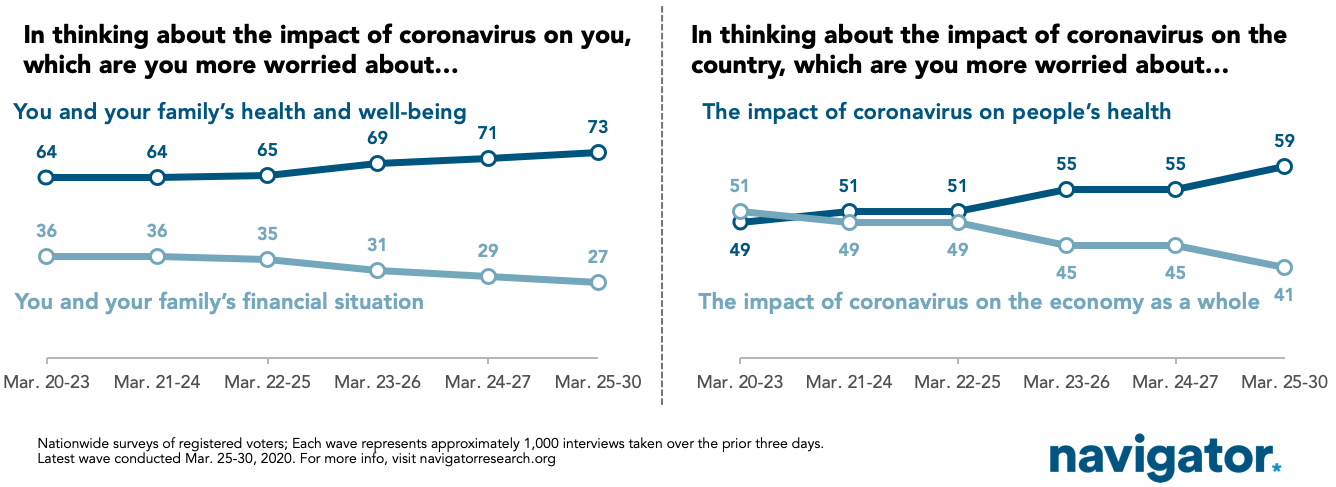
Partisanship is shaping Americans’ emotional response. Most Democrats are afraid while Republicans tend to be hopeful.
- Republicans are 15 points more likely to feel hopeful now than in our first update (34% hopeful on March 23rd).
- Independents are 13 points more hopeful since our first update (was 25%), and 17 points less confused (was 39%).
Americans are Still Bracing For the Worst.
As infection rates climb, three-in-four Americans think the worst of the coronavirus pandemic is yet to come.
- Still, in line with Republicans’ relative hopefulness, they are more likely to believe the worst of the pandemic is over already.
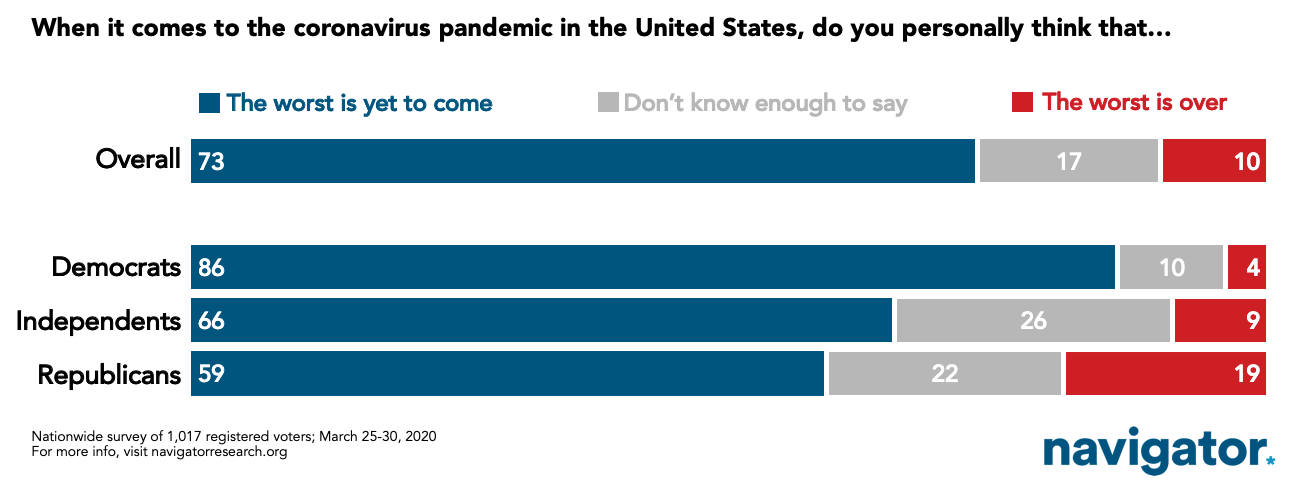
Disapproval of Trump Response Remains Elevated.
For the fourth consecutive update, we find Americans largely split on Trump’s response to the pandemic.
- Approval ratings among Democrats and Republicans have held since our last update, but net approval among independents is now at its highest point in our tracking (53% approve, 36% disapprove).
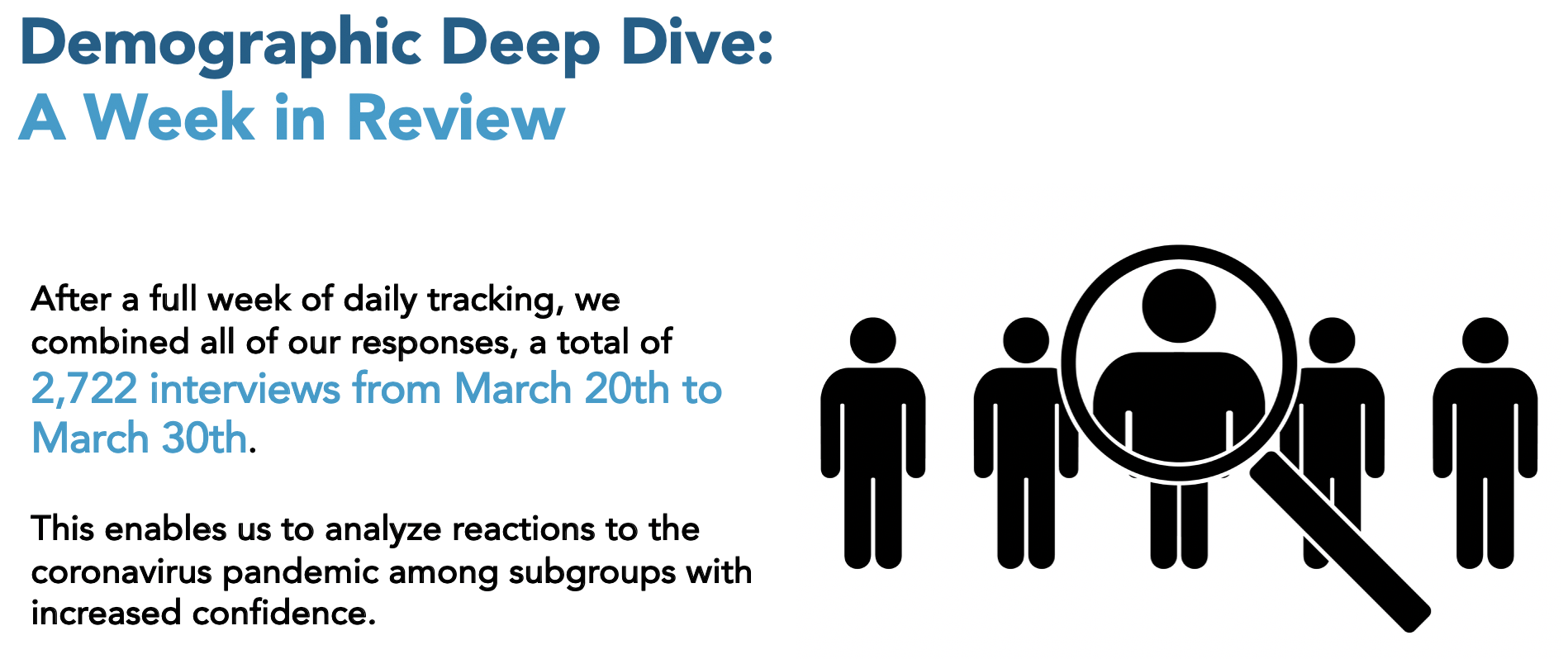
Divergent Economic Concerns By Race and Class.
People of color and workers in the service sector are far more worried about the impact of the coronavirus pandemic on their personal finances.
- 30% of Hispanics and 24% of African Americans say their hours have been cut due to the pandemic, compared to 16% of whites. 29% of service sector workers say their hours have been cut back.
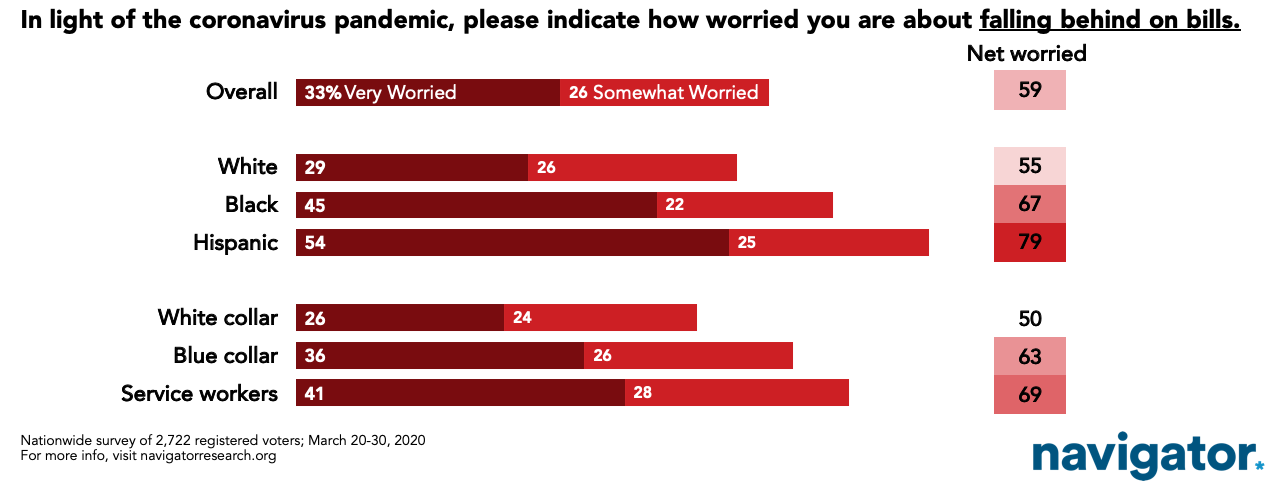
People of Color More Worried About Testing Access.
People of color are far more concerned about being unable to receive a test for the virus if they need it than whites.
- Relatedly, 82% of Hispanics are worried that there won’t be room in hospitals or available doctors if they get sick from coronavirus, compared to 69% of whites and 70% of African Americans.
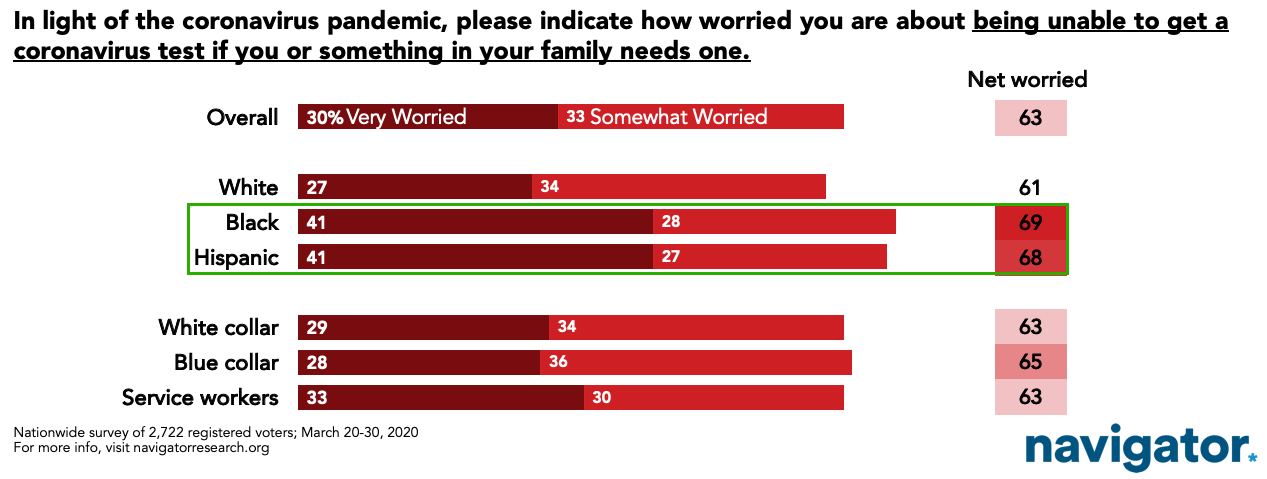
Fox Viewers Still Have Divergent Views on Trump, Economy.
Unsurprisingly, Republicans who watch Fox News are significantly more likely to approve of Trump’s handling of the pandemic.
- The majority of Republican Fox News viewers (55%) also say the U.S. economy is excellent/good, while two thirds of the public rate the economy as not so good/poor.
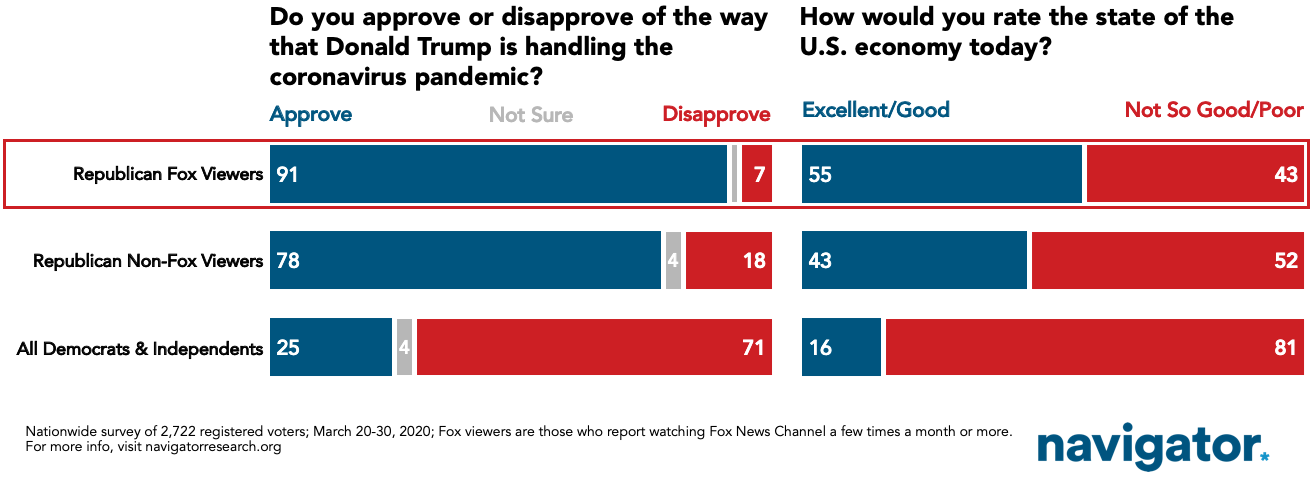
Fox News Viewers are no less likely than other Republicans to call the pandemic a “a major crisis” and just as likely to avoid in-person interactions.
- Still, as we’ve seen throughout our tracking, Republicans are slightly less concerned than Democrats about coronavirus.
Both Rural & Urban Americans Changed Behavior.
Despite varying rates of infection experienced in urban, suburban, and rural areas, 95% of Americans in each of these communities are participating in social distancing measures.
- We noted in previous updates that urban residents (and Democrats) are more concerned about friends and family being infected, but that has not impacted likelihood to take preventive measures.
